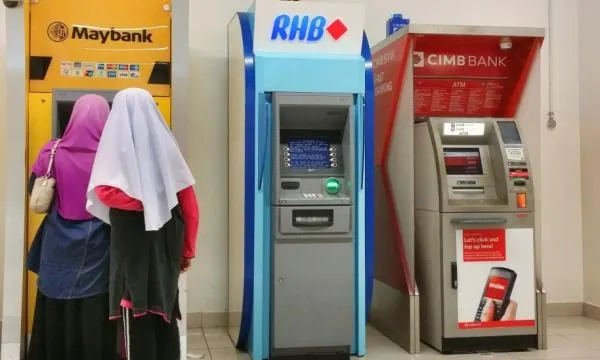
Is Islamic financing the future of Malaysian banks?
It grew 10.3% unlike conventional banks which rose marginally by 1.7% in 2017.
Islamic financing is set to boost the growth trajectory of Malaysian banks in the near future as it continues to expand at a faster rate than conventional banks (10.3% vs 1.7%) in 2017, according to RAM Ratings Services Bhd.
Improving consumer sentiment and steady business optimism is also set to fuel demand for Islamic financing over the course of the year.
“Our analysis shows that Islamic financing has overtaken conventional loans as the growth driver for the domestic banking system in recent years. Islamic financing accounted for 71% of the increase in the banking system’s financing in 2017,” said RAM co-head of financial institution ratings Wong Yin Ching.
Also read: Malaysian banks to shift focus on investing in digitalisation
Asset quality of Islamic banks continue to display resilience with gross impaired financing ratio of 1.2% as of January 2018 and annualised credit cost ratio of 19bps in 2017, RAM added.
"Islamic banks’ GIF coverage had strengthened to 108% as at end-January 2018 (end-December 2017: 89%), due to the incremental impairment provisions arising from the implementation of MFRS 9 in 2018, as banks with December financial year-ends have already adopted this standard,” the research company noted.
Here’s more from RAM Ratings:
The strong growth momentum for Islamic financing is expected to continue in 2018 – with expansion coming in at the mid-to-high teens, premised on improving consumer sentiment and steady business optimism. Our growth target also factors in Malaysia Building Society Berhad’s Islamic financing portfolio (through Asian Finance Bank Berhad), which will augment the Islamic banking system’s financing by some 7%.
In its latest move to steer players towards sustainable intermediation, Bank Negara Malaysia introduced the value-based intermediation (VBI) principles in a strategy paper released in July 2017; this was subsequently finalised in March 2018. VBI aims to deliver the intended outcomes of Shariah through practices, conduct and offerings that generate a positive and sustainable impact on the economy, community and environment – without compromising the financial returns to shareholders and their long-term interests. The implementation of these principles necessitates a paradigm shift in how banks provide financing and other financial services, as well as changes in business processes. At present, nine Islamic banks have committed to adopting the VBI principles in their business strategies; implementation will be in phases, with each bank determining its own timeline.




![Lorem Ipsum [ABF 1]](https://cmg-qa.s3.ap-southeast-1.amazonaws.com/s3fs-public/styles/exclusive_featured_article/public/2025-03/a_hand_pointing_to_a_futuristic_technology_5b87c9d0e3_1.png.webp?itok=2w0y1WhS)


![Cross Domain [Manu + SBR + ABF + ABR + FMCG + HBR + ]](https://cmg-qa.s3.ap-southeast-1.amazonaws.com/s3fs-public/styles/exclusive_featured_article/public/2025-01/earth-3537401_1920_4.jpg.webp?itok=WaRpTJwE)







 Advertise
Advertise

